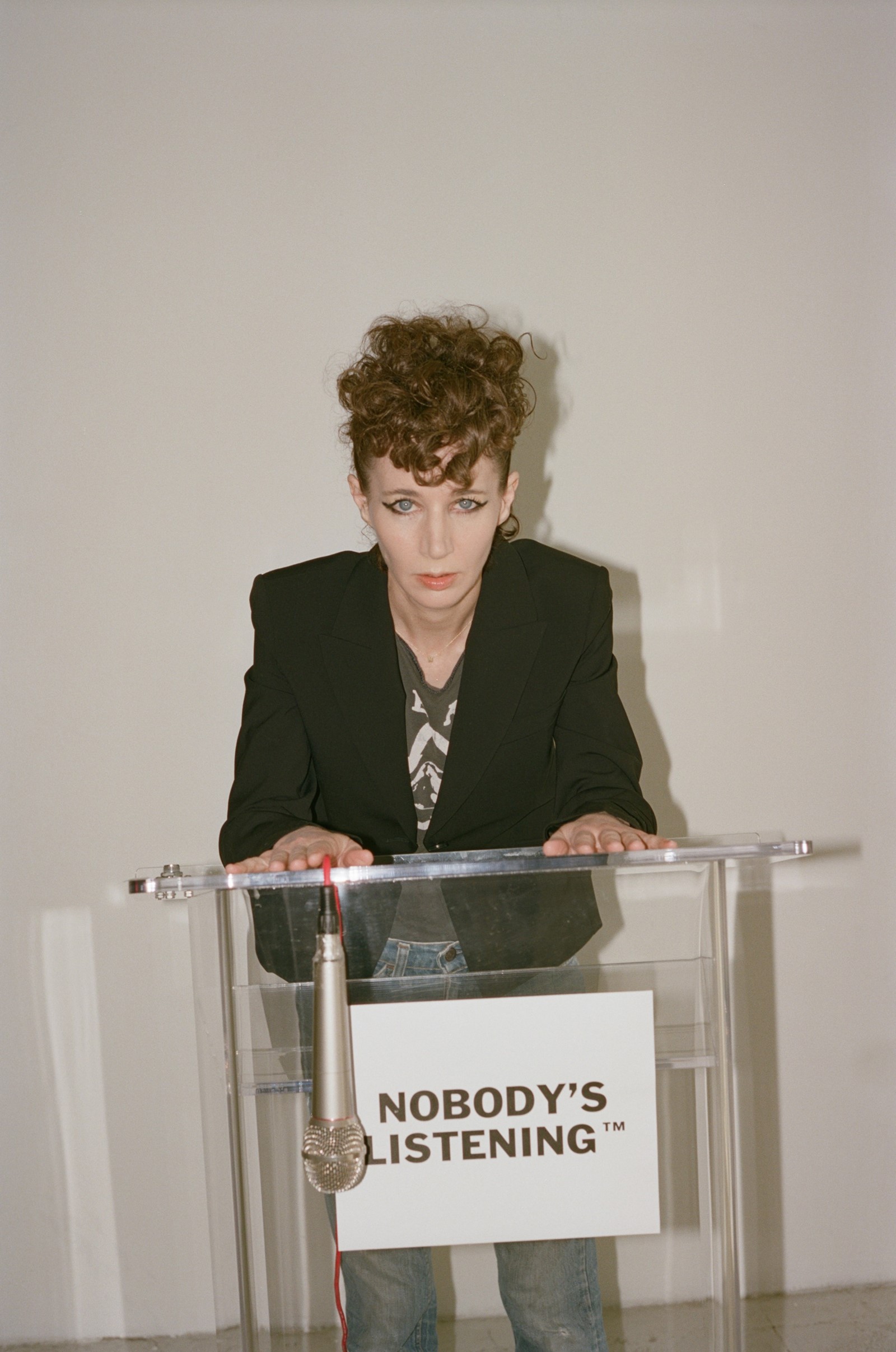This article is published as part of our #CultureIsNotCancelled campaign:
It’s two weeks into the coronavirus lockdown and Miranda July has found her rhythm. For the filmmaker, actor, app developer, charity shop-curator and author, that means orchestrating a virtual book tour, working on a novel, spending time with her husband and child, and hosting the delightful ‘Covid International Arts Festival’ on her Instagram.
The festival, born from wandering thoughts while doing the dishes, has become a sprawling DIY affair. Hundreds of people responded to July’s Instagram call-out for art to review with their drawings, poems, films, songs, from Istanbul to Montana and Hertfordshire. “I realised after a few hours that I had my work cut out for me,” she tells me over the phone the evening after, from her home in Silver Lake, Los Angeles. “I went through every single submission alone in my converted garage, my husband and child in the house. I felt a little less lonely, for a while, and I think others did too.”
Amid the pandemic, it’s difficult to find the words to articulate feelings in ways that aren’t trite. Nevertheless, as we all retreat into isolation to ‘flatten the curve’, many of us are privileged enough to have the space to explore art and the comfort and inspiration it can offer in crisis. As we reinvent human intimacy with the help of technology, no one’s work seems to speak more to the times we’re in than July’s. Her self-titled new book, released in the UK and US today – which goes ahead despite lockdowns in each country – offers up a kinetic survey of work, hop-scotching from age 18 to the present with archival titbits and commentary led by peers and collaborators from Lena Dunham and Carrie Brownstein to Spike Jonze and David Byrne. It delves into a formidable artist’s constantly evolving process, and heartfelt themes of intimacy and connectivity across mediums.
“So much of my work comes from feeling isolated and lonely. Technology has always been put to best use by people who feel cut off,” July explains. Significant and lesser-known performances offer insight and pertinent contemporary themes: her 2005 Caméra d’Or-winning film Me and You and Everyone We Know is an unflinching, poetic ode to the laborious struggles (chatrooms, dating sites, awkward text small talk) we undertake to reach romance, friendship, and sexual experiences. In 2015, July’s Somebody app project enlisted users to deliver messages to others IRL, like Uber for pass-notes. The We Think Alone email project, in collaboration with the likes of Kirsten Dunst, Catherine Opie, and Lena Dunham, repurposed their everyday personal emails – in both its stimulating dose of voyeurism and mundanity, July offers comfort and intimacy.
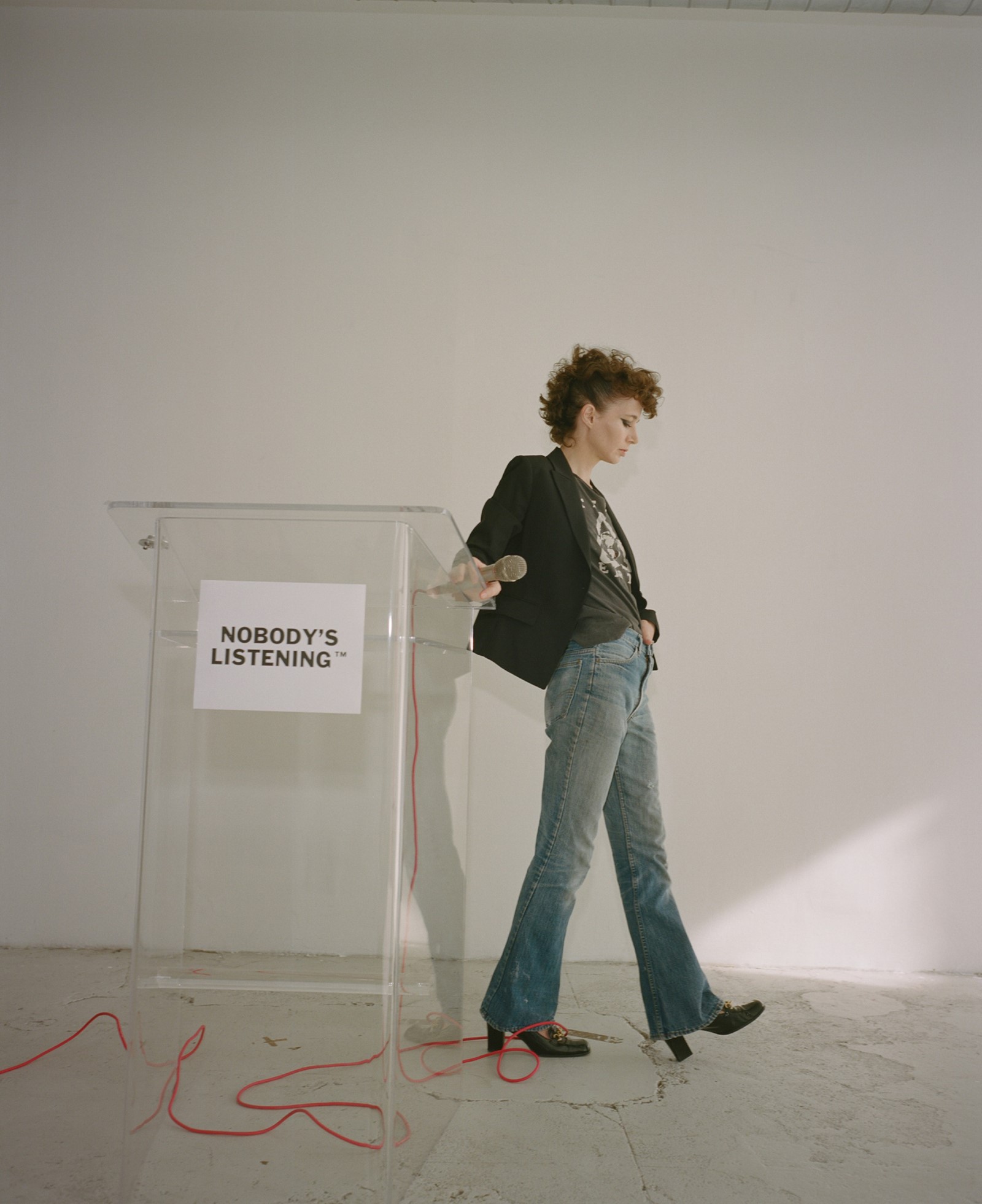
“When my world is already so much about connecting people and repurposing technology, in ways, this time feels like the ultimate creative prompt,” says July. “And for some people right now, I can be the context and the platform they need for the support in this moment. I might not be able to be an emergency nurse, but if I can provide some kind of psychological care for somebody through art I will ... I have looked into how I could get into being an emergency nurse though.
“I’ve had to think hard about where my energy is best placed,” she continues. For now, she believes it is to focus on her novel, experiment with Instagram projects like the surreal skits with actress Margaret Qualley, and “definitely” another Covid Arts Festival when we’re further into quarantine. “I could imagine in the future that people will barely be able to believe that social media and online culture was not created in response to pandemics, in response to the self-isolation we have to endure. Social media, and art too, is a precipice on which to reflect.”
“I could imagine in the future that people will barely be able to believe that social media and online culture was not created in response to pandemics, in response to the self-isolation we have to endure” – Miranda July
For years, July was asked by publishers to produce a retrospective of her cross-disciplinary career. It was only when she turned 45 that she saw it as a “rite of passage” that she could fulfil, and then move swiftly forward. A scrapbook-like oral history, July describes the mentally challenging process of distilling her life’s work into one document across last summer.
“I realised how hard it was going to be to delve into my past, with a degree of self-consciousness that’s not typical or comfortable for me,” she explains. Initially, July had set out to write the book by herself, but that didn’t excite her. “I imagined that a lot of my audience wouldn’t be used to buying a $50 art book. If I was picking up a book on Sophie Calle or Patti Smith, women I admire, I would want all the dirt from her friends who worked with her. What were the hard parts? What were the times she fucked up? I found that much more exhilarating.”
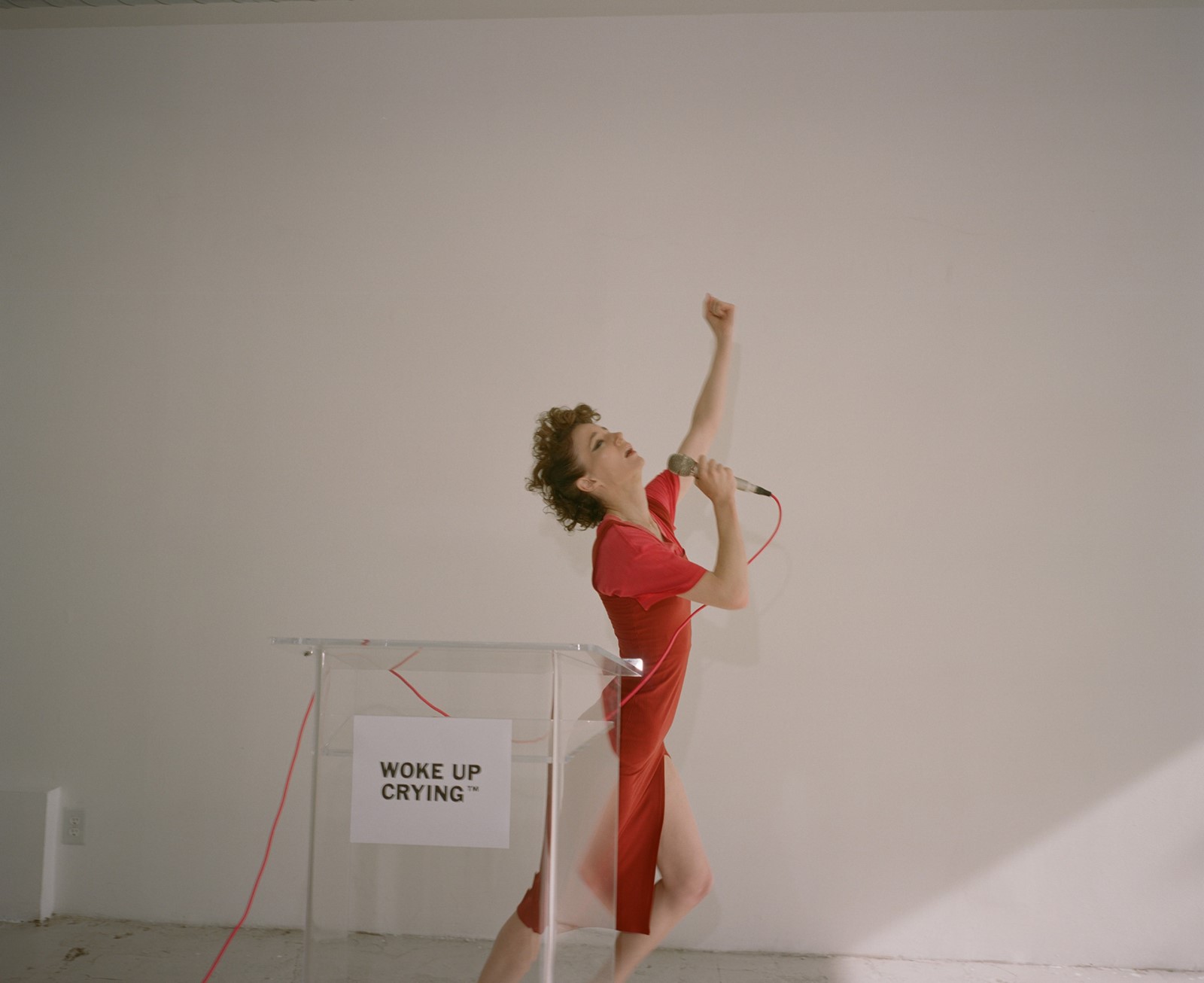
Raised in a liberal, creative community with parents who were writers and publishers in Berkeley, California, July left college at 19 and embedded herself in Portland’s underground punk scene. It was there that she published zines, played in bands, and started the seminal feminist film archive via analogue tapes Joanie 4 Jackie. The book charts a thriving life lived from her surreal ‘live movie’ piece Love Diamond in 1998 to three feature films. We glean a sense of the inner-workings of her fiction, like the fantastical and devastating short story collection No One Belongs Here More Than You – the blisters of sad and lonely people’s lofty, intense fantasies burst to reveal calluses of their dissatisfying everyday lives: “Inelegantly and without my consent, time passed,” one concludes. July continues to prod at our ideals of reality, and what it means to be alive in times of immense highs and lows.
The mini-essays by friends offered both clarity and questions. “Some friends never seemed to think I got creative block, that it was never hard for me! Others saw when I was exhausted,” she says. “I wanted my false starts and wobbly moments to be really clear. There’s a running theme of relentlessness that really surprised me, though I always felt that in my heart.” Though that determination is spoken about positively, July began to reflect on the “always on” energy levels she exuded.
“I wondered whether I need to be relentless all the time. What am I missing otherwise? Is there a creative territory that I could discover through a different kind of energy? It’s truly a gift to be given the perspective to get to reflect so broadly. Like discovering all these new TV channels about yourself,” she says.
“It’s truly a gift to be given the perspective to get to reflect so broadly. Like discovering all these new TV channels about yourself” – Miranda July
As much as a personal journey the book has been, July sees it as a blueprint for other artists in an amorphous world of multi-hyphenates and precarity in the creative industries. “I wanted to show readers how all these disciplines work together, because it can feel very mysterious. I have found that, as a multi-disciplinary person, not one of these singular categories really claims you,” July explains further. “You’re always floating between worlds. There was never going to be a mid-career retrospective at MoMA for me, and I think there’s a freedom in that. I always hope to be a person with no nation, making and remaking my own place. The downside of it is that you don’t have a home. You are your home.”
In some ways, I offer, the book is her home. “It’s the infrastructure and the institution,” she agrees. “This book makes concrete my life and work that no other institution is going to do for me, because I haven’t played by the rules that earn you that.” In the book, July speaks of how she kept detailed journals until the age of 30 – after Me and You, they dwindled. “I still had just as many feelings,” she writes, “but I didn’t feel the need to gather them up and save them, because my work could now do a good enough job of that.”
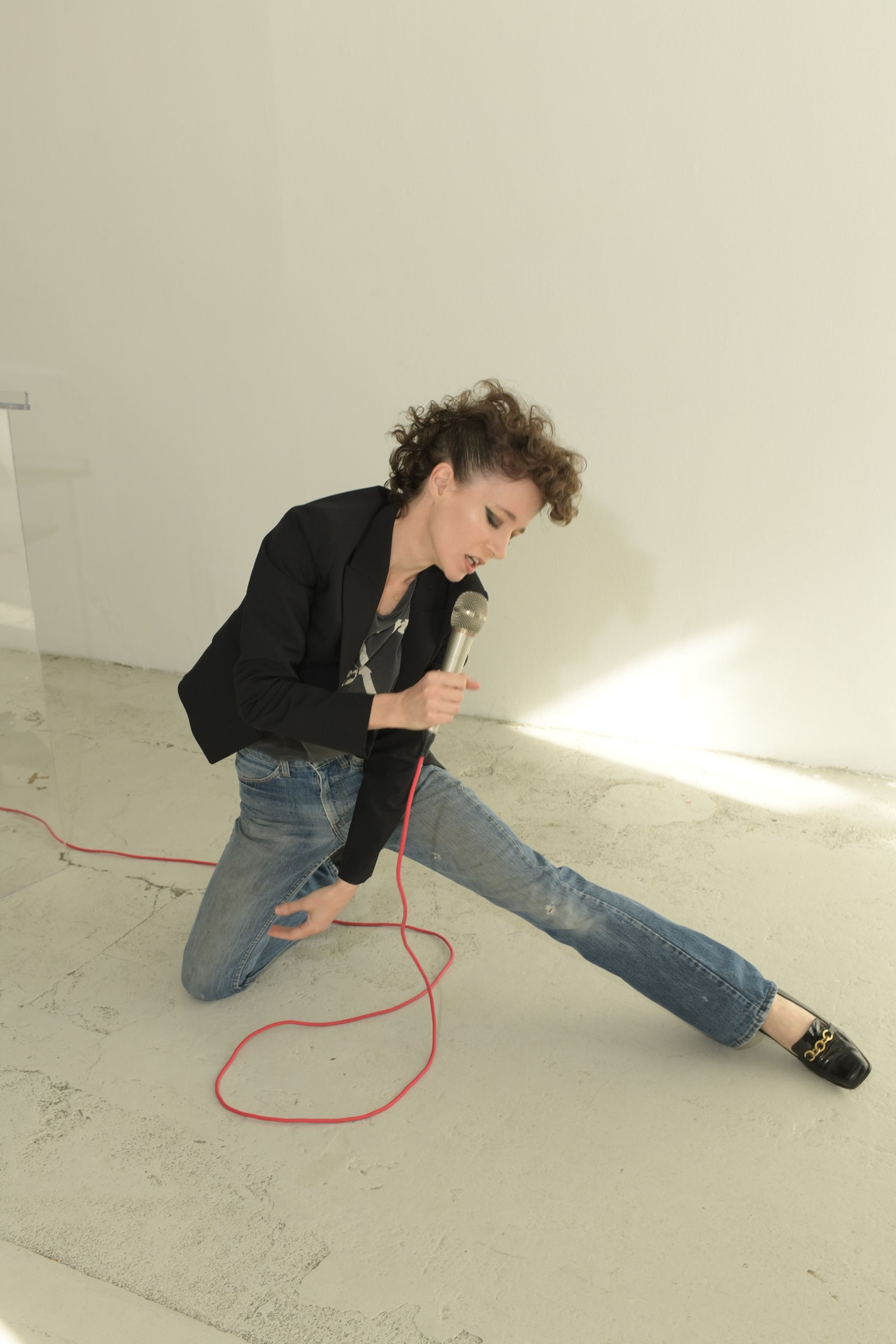
Some performances, from the lesser-known Swan Tool to Love Diamond, “hit differently”. “Looking back I can pinpoint times when I was a little embarrassed by work – maybe I didn’t think that I had nailed it, or my dad told me it wasn’t as good as something else,” she admits. “But I can see where I was going, the journey to that first book or the themes I would lean more into with a movie. I’ve been inspired to put a lot more archival material on Instagram for that reason – in 2020, I’m excited to share all of those little false starts.”
After Me and You received critical acclaim, film opportunities came rushing forward, but the need to lean into another medium became clear with her electric debut of short stories. “It wasn’t easy,” she remembers, “to see a first book deal or first movie as the ultimate thing, then push it away in favour of any endeavour. I knew that it seemed odd to pursue that with everything else going on and spend years doing so. Like, I wasn’t striking while the iron was hot. “I just want people to know that at times the journey might feel very wrong. People close to you can say it’s a huge mistake. You’re the only one who will know what your life is supposed to look like. There was no one person I was following. I am happy to always be feeling it out.”
“I just want people to know that at times the journey might feel very wrong. People close to you can say it’s a huge mistake” – Miranda July
July’s last directorial feature, The Future, debuted at Sundance nearly a decade ago, and though she’s been there since as an actor, Kajillionaire’s premiere was a significant moment. The film, a surreal, comedy-drama heist, stars Evan Rachel Wood and Gina Rodriguez, is due out in June 2020. Another tale for our times – with a dysfunctional con-artist family – in all its absurdity, July startles with a Trojan horse of a story on vulnerability and the need for baseline love.
It’s also the first July feature in which she doesn’t act. “It came to me as a pretty fully formed idea,” she relates. “I told it to my husband. I asked him, ‘what’s different about that idea than any other movie I’d ever had?’ He’s like, ‘what, I don’t know’. I said, ‘I’m not in it, there’s no part for me. There’s no woman my age’. I knew it was gonna be my next movie. I had all these amazing women like Evan and Gina, I didn’t have to think about myself! Although, I did go on to make something right afterwards that I acted in. So I think I think there was some part of me that was like, ‘OK, now give me a little star turn,’” she laughs.
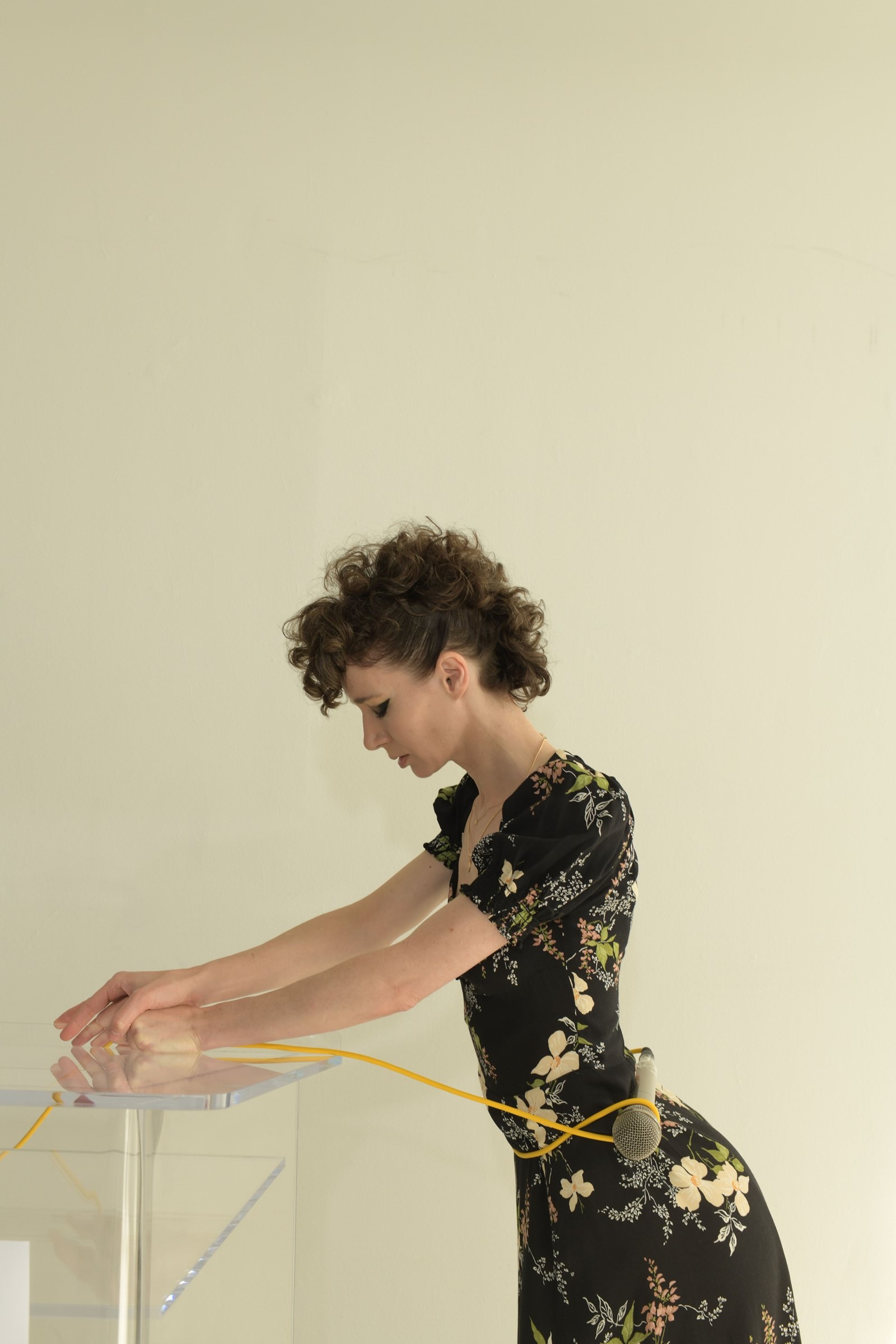
Of her many mediums, it’s in the realm of “out-of-controlness” that July’s visions spring forth, despite the work she has to do to make herself let go. On set, July is known for super specific notes for her actors, down to the cadences in their voices and facial expressions. “Over time I’ve realised the out-of-controlness of filmmaking, and how beautiful and powerful that is. I might map out every scene but collaboration is a real joy, especially with the incredible actors in Kajillionaire. You can have a very specific vision, choose the right people to do it, giving both freedom and boundaries, but you’ll always end up with these jagged pieces that you have to organise and put to music.
“It’s the best way to get at what life is like, to capture the human experience. There is a dream logic to life – the chaos and precision of filmmaking gets that.”
July was challenged by Kajillionaire, as her most technical work yet. “One very long scene all done in one continuous, choreographed shot at the gas station took about 17 takes, I hadn’t done something that complex before. I mean, there’s nothing I could do to Evan that she wouldn’t have done that’s 100 times scarier on Westworld, but this was physically demanding. I was pushing them, but they’re amazing actors, they gallop. I was ecstatic.
“I would give them specific notes and then hide in my chair so I wouldn’t be near the shot to watch. I had to battle with the feeling to let go of each take. I grew to love watching as if I was a viewer, what a treat! What an honour to be the first person to watch their movie!”
In July’s 2007 short story Swim Team, a ‘coach’ teaches people in a land-locked, swimming pool-less town to swim. Providing bowls of water, she instructs her class to submerge their faces, stroke their arms through the air, and belly flop on a bed. “I was instead of the water,” she says. “I kept everything going.” Though July doesn’t believe she’ll ever answer her own existential questions on life, she remains dedicated, through uncertain times, to being a support network for the floundering (sometimes as a playful, multi-storied Instagram hub) and for herself, an ever-evolving work-in-progress. As July says, “it doesn’t have to be right, it just has to be alive”.
Miranda July’s new book is out now, while her film Me and You and Everyone We Know is being added to the Criterion Collection at the end of April and her new film Kajillionaire is set to be released this summer.
